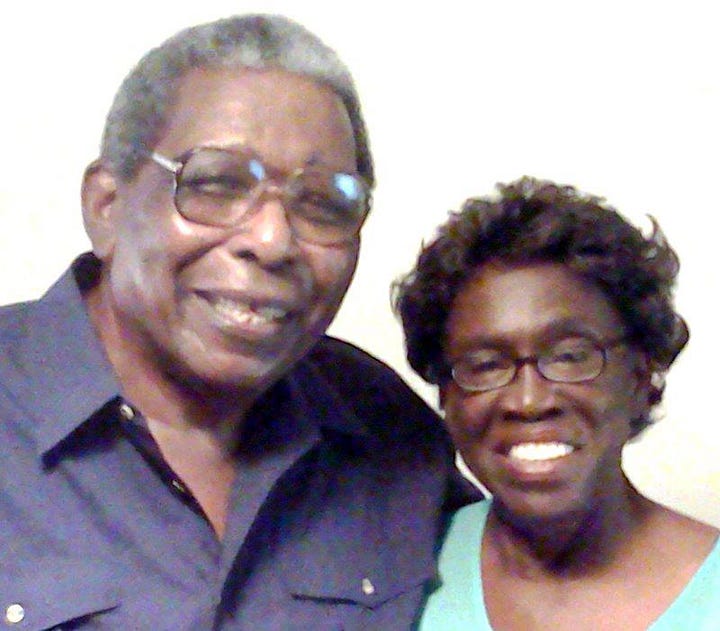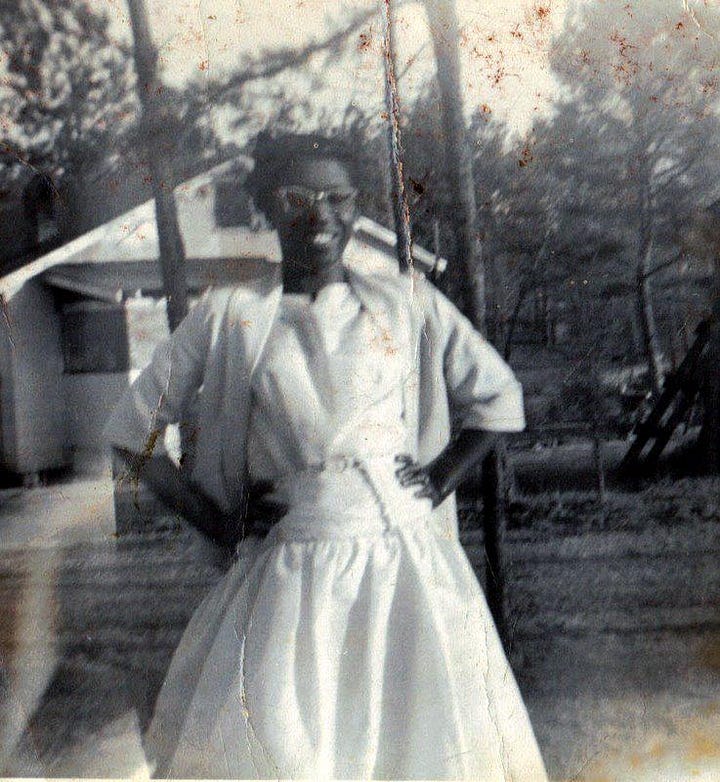Welcome to Fidgets and Fries!
Mostly free. Somewhat not.
If you’d like to honor my writings with a monetary contribution, thank you. If you already have, thank you. Your support allows me to invest in my writing in a way I hadn’t thought possible as well as pay for my son’s communication lessons. And if you are still an unpaid subscriber, thank you. Cause in a world where everyone wants their eyes on their work, you still chose to put your gaze on mine.
This newsletter rests at the intersection of the unserious ramblings of a woman full of buttered rice and dad jokes and the somewhat sophisticated stories and essays of someone who knows just enough “smart” words to sound super intelligent and insightful.
What will today’s newsletter be? Hmm…
Once you leave home, you learn about it in ways you couldn’t while you were there. The farther you go, the clearer it becomes—not just the place, but what you want “home” to be.
My family’s roots run deep in Alabama. My mother, fifty-four and full of life, was born on the “colored” side of a segregated hospital. My great-great-grandmother never knew her age; no birth certificate was given to people like her. My grandmother pieced together her birth year from Census records, but her birthday came and went without certainty. My grandfather returned from a war to find himself still seen as a stranger, called names by the country he’d fought for. In Alabama, my family fought every day: for their dignity, for their lives, for their place in the world. And yet, Alabama was home.
My great-grandfather’s journey in the Army led him and his family to Texas. With my great-great-grandmother at the center, we had six generations under one Texas sky, though most of our family stayed in Alabama. My grandparents loved Texas, spent forty years here, and I was sure it was home to them too. But with each of their passings, we drove back down I-20 to Alabama to lay them to rest.


I thought my grandmother—my best friend—would want to be buried here. She’d built her life in Texas, most of it lived outside Alabama. Yet, when the time came, she wanted to go home. I didn’t understand, couldn’t understand then. Texas was home; why would she want to leave? But to her, returning to Alabama was a final choice as essential as where she’d chosen to live.
Texas was where they lived, but Alabama was where they belonged. Their memories lived in Alabama’s landscape, even if it held both promise and pain. When my grandmother spoke of her childhood, Alabama was alive in her stories, her words filled with both heartbreak and a deep pride. Alabama had shaped her in ways Texas never could.
Memories are complicated things. They hold us close to those we’ve lost and bind us to places we’ve left behind. I find my grandparents in these memories, their sense of home imprinted within me. They returned to Alabama because the fields of their youth still anchored them, despite the hardship, despite the racism they endured there. Nature gave my grandmother a kind of freedom she couldn’t find in society, a place where she could escape, if only for a while, from the weight of a world set against her.
Growing up, I never questioned their love for Alabama. But as the years passed, I came to see what being away from home had done to them. Texas made them more aware of their “otherness,” of being Alabamian still. They heard it in their own voices, their Southern drawl softened here, but unmistakable. They felt it in the space around them, the way Texas didn’t hold them quite the way Alabama had.
As I remember my grandparents, I realize I’ve been searching for that sense of home myself—not a place on a map but a place where I belong. For years, I tried to find this in the Autism community. But being part of it, with my multiple identities, felt like trying to fit parts of myself where they could never fully belong. It left me splintered, and it took stepping away to understand what I truly wanted. Being on the outside helped me see that home isn’t about geography, and it’s not about a perfect community. It’s about spaces where we’re fully seen, wholly ourselves.
My work now is about making this Autism community a place that can be a true home, one worthy of all our complexities and intersectional identities. Home doesn’t have to be somewhere we all understand, but it’s a place where we belong, each in our own way. For too long, people have told me I can’t build this kind of community—that my vision is too scattered, too messy. But I’m building it anyway. And I hope that you’ll join me, that together we can make this a place where everyone’s voice is honored and heard.
Home isn’t something we inherit—it’s something we build. That’s what I’m trying to do: create a space that embraces all of who I am, fully holds my children, and honors the entirety of who its members reveal themselves to be.






I absolutely love your big, messy community. I learn so much just reareading, just absorbing. I appreciate you.
I love all of your writings . But this one is especially memorable.